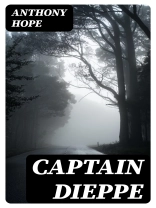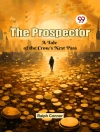In ‘Captain Dieppe, ‘ Anthony Hope presents a riveting tale of adventure that intricately weaves themes of loyalty, honor, and the complexities of human relationships against the backdrop of a tumultuous political landscape. Written in Hope’s characteristically engaging prose, the novel employs a blend of vivid imagery and sharp dialogue, capturing the tension and excitement of naval exploits during an unspecified yet evocative period. This literary piece fits within the genre of Victorian adventure fiction, reminiscent of Hope’s earlier work, ‘The Prisoner of Zenda, ‘ while further exploring the moral dilemmas faced by its characters amid the turbulence of duty and passion. Anthony Hope, an English novelist and playwright, garnered popularity in the late 19th century for his ability to blend romanticism and adventure, with his works often reflecting the social and political climates of the time. His experiences in the legal profession and fascination with European history significantly influenced his writing, particularly in exploring themes of identity and allegiance. Hope’s extensive travels and interactions with diverse cultures also contributed to the depth and authenticity evident in ‘Captain Dieppe.’ Readers seeking an enthralling narrative that probes the depths of personal sacrifice and national identity will find ‘Captain Dieppe’ to be a compelling addition to the adventure genre. The novel not only captivates with its action-driven plot but also invites reflection on the nuances of human nature, rendering it a worthy exploration for enthusiasts of both classic literature and modern psychological insight.
Sobre el autor
Sir Anthony Hope Hawkins, better known by his pen name Anthony Hope, was an illustrious English novelist and playwright who gained immense popularity in the late 19th and early 20th centuries. Born on February 9, 1863, in London, Hope was educated at Marlborough and Balliol College, Oxford, later pursuing a career in law before venturing successfully into literature (Wolff, 1987). His literary style is characterized by a blend of adventure, romance, and political intrigue, elements vividly realized in his most celebrated work, ‘The Prisoner of Zenda’ (1894). This novel, alongside its sequel ‘Rupert of Hentzau’ (1898), established Hope’s reputation, positioning him as a master of the adventure genre. ‘Captain Dieppe’ (1899) is another testament to Hope’s skillful storytelling, offering readers a spirited mix of heroism and humor set against the backdrop of European political machinations. Hope’s writings, while reflective of the imperial attitudes of his time, remain distinguished for their wit and swashbuckling appeal. His contributions to English literature were acknowledged with a knighthood in 1918. Hope continued to write until his death on July 8, 1933, leaving behind a legacy encapsulated in a prolific output of over thirty novels, short stories, and plays (Cox, 1987).












